Strategic Growth in the AI Era: Catalyst CEO Idezawa on Leading with a Future-Back Approach
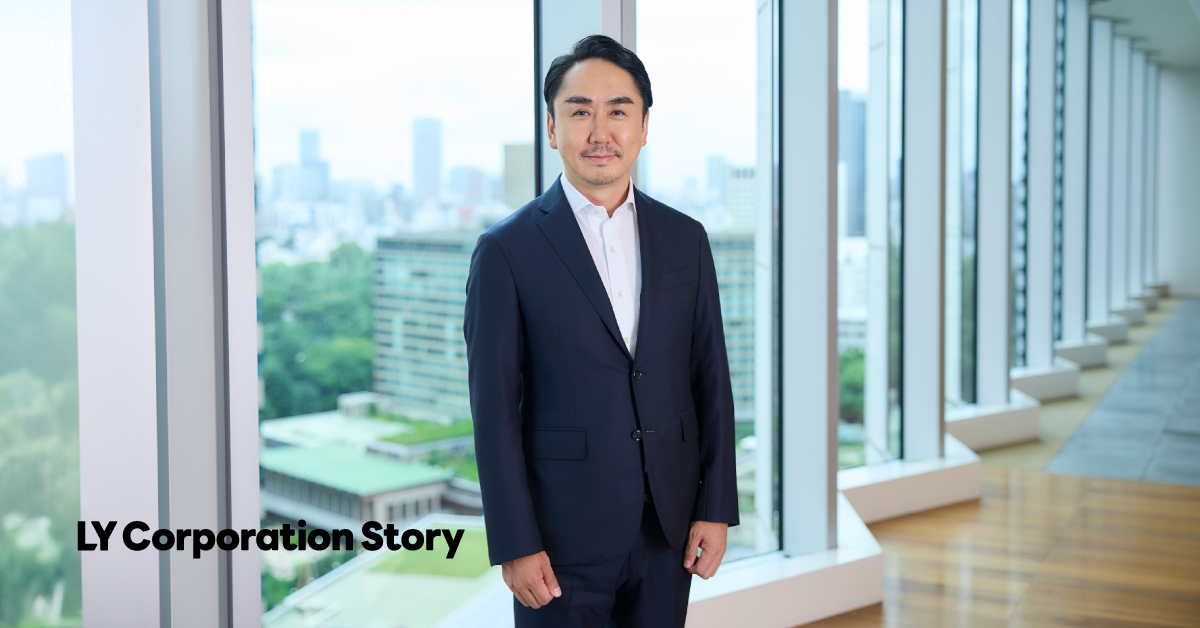
Leadership as a catalyst: bringing order to organizational chaos and unlocking the full potential of employees.
As society undergoes a major transformation with the evolution of generative AIーone that rivals the Industrial RevolutionーCEO Idezawa, now in his third year at the helm of LY Corporation, describes his role as that of a "catalyst."
What does it mean to lead a growing organization during such a time of upheaval? We explore the mindset and actions behind his approachーone rooted in embracing change and empowering people and organizations.
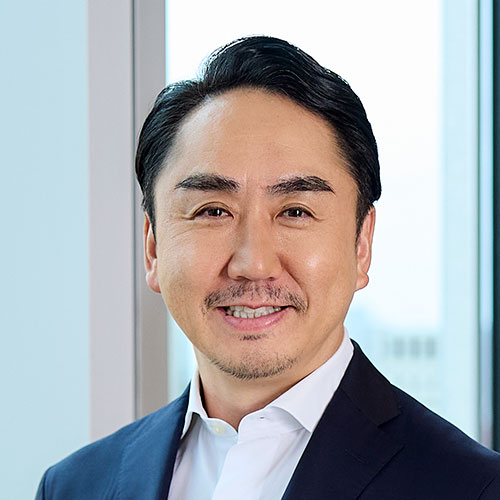
- Takeshi Idezawa
- President and Representative Director, CEO (Chief Executive Officer), LY Corporation
After graduating from Waseda University, Idezawa joined a life insurance company and worked in sales. In 2002, he moved to Livin' on the Edge Co., Ltd. In April 2007, he was appointed CEO of livedoor Co., Ltd., where he spearheaded the company's turnaround and achieved profitability on a full-year basis within a year and a half.
Following a buyout and management integration, he became a Director of NHN Japan Corporation in January 2012. He later served as Director of LINE Corporation (formerly NHN Japan) starting January 2014, Representative Director, President and CEO from April 2015, and Representative Director, Co-CEO of Z Holdings Corporation from March 2021. In October 2023, he assumed the role of President and Representative Director, CEO of LY Corporation.
A childhood inspired by warring states heroes who faced adversity
――We'd like to delve into your personality today. Is there a word that best describes your character?
If I had to share a shortcoming, I suppose you could say I'm a bit slow to react. My reflexes aren't the sharpestーI sometimes don't realize something unpleasant was said to me until the next day.
During my time at livedoor, we went through an extremely tough period as a company, including the arrest of executives. As the person entrusted with leading the company, I did my best to face the situation sincerely and carry through to the end for the sake of our users and employees. A former colleague who left the company once jokingly said, "You stuck around too long," but I took that as a kind word of recognition for having stayed and done what I could during such a difficult time.
――In other words, would you say that you have a strong sense of responsibility?
That might be true. I'm the type of person who finds it hard to say no when asked to do something, and I feel it's a bit uncool to abandon things halfway. I try to stay mindful of the role I play in whatever position I'm given at the time.
By continuing to face the challenges before me, I found the environment gradually transformingーand that path has led me to where I am today.
――So would it be accurate to say that, as a result, the organizations you were in charge of kept getting larger?
Yes, that's right. I've often found myself entrusted with areas that seemed less prominent at first. But through sincere and steady effort, those areas gradually became part of the mainstream, and the businesses or services I was overseeing grew in size.
For example, at livedoor, I wasn't assigned to the mainstay portal business but to the newly launched mobile content division. That business expanded significantly as the market itself grew.
So I feel that real change and innovation often emerge from the periphery.
――Were you often put in leadership roles from a young age?
I wasn't the type to volunteer for leadership positions, but in junior high and high school clubs (soft tennis club), I was often encouraged by others to take on that role.
Maybe even back then, people saw me as someone they could count on to take responsibility and follow through to the end.
――I understand you've had a deep interest in history since childhood. Are there any historical figures or ways of life that have influenced you?
I was drawn to the lives of samurai warlords in Ryotaro Shiba's historical novels. The great ones never gave up, even in the most dire situationsーthey found ways to turn things around. The human drama in those stories was fascinating, and I was completely captivated by their intensity.
I was also really into the historical simulation game Nobunaga's Ambition. What I enjoyed most was the domestic affairs phase, where you develop agriculture, commerce, and industry to improve people's lives. I loved bringing order to chaos and building a foundation for what comes next. That part, I feel, really connects with what I do in my work today.
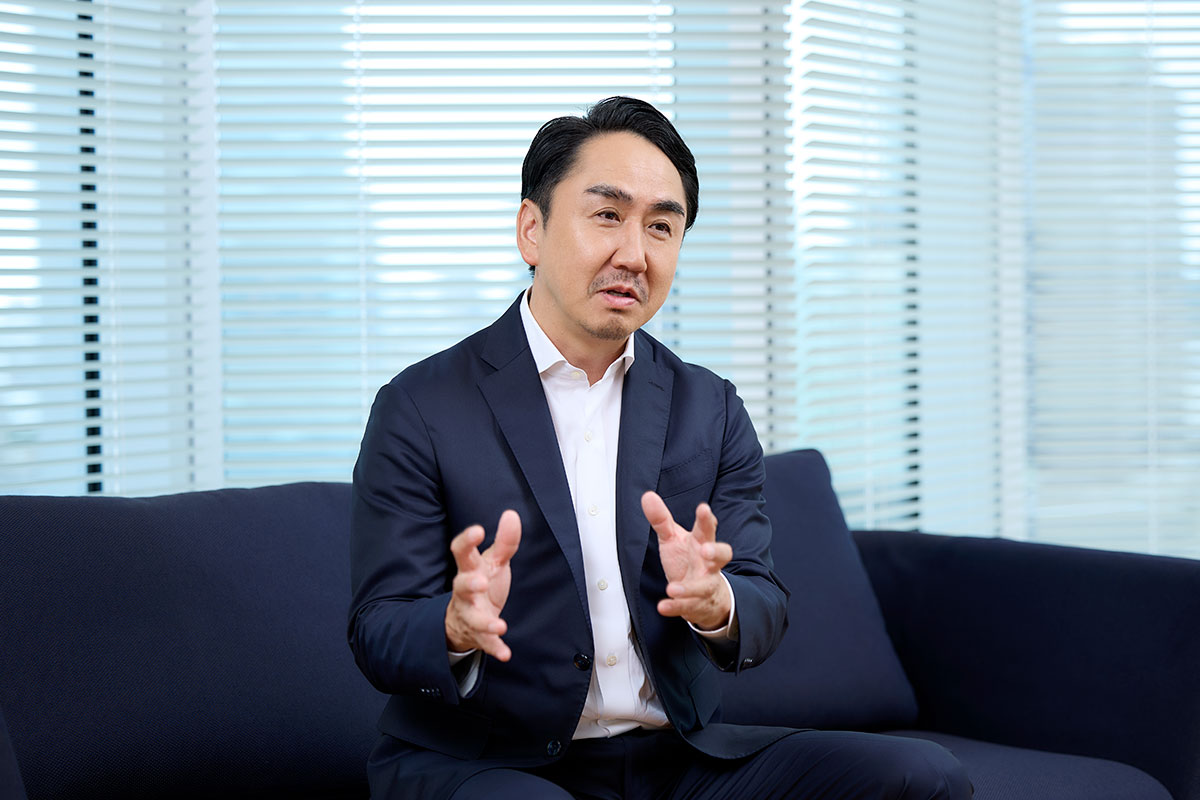
Awakening to product-centric thinking and a shift in perspective
――Looking back on your career, when would you say was the biggest turning point?
It was when I became CEO of livedoor. Until then, I had mainly worked as a mid-level manager, focusing on achieving targets within a specific domain. Suddenly, I was in a position where I had to oversee the entire company and navigate between various stakeholders.
That experience made me start thinking in terms of "working backward from the future." It broadened my perspective significantly, and through constructive competition with other executive peers of my generation, I was both encouraged to move into the next phase and able to climb to new heights alongside them. It was a real eye-opener.
――Through the various M&As, you must have met many different business leaders. Were there any who influenced your thinking or changed your perspective?
Absolutely. Working with people like Shin (now CPO of LY Corporation), whom I've known for over a decade, and Hae Jin Lee (founder of NAVER and now Chairman of A Holdings), exposed me to the concept of "product first."
Until then, Japanese internet companies had generally been more business-driven, but I learned from them the mindset that, in the internet industry, true value comes from innovationーand that it's meaningful only when it makes people's lives more convenient.
Creating services that are genuinely valuable to society requires full commitment at the management level, pouring everything into a single attempt, and doing it over and over again. Even then, there's no guarantee of success. That reality hit home, and it's exactly what happened when Shin and the team created LINE.
On the other hand, through the business integration with Yahoo Japan, I had the opportunity to work with Masayoshi Son, Chairman of SoftBank Group Corp. His unwavering vision, the drive to realize it, and sheer energy were truly overwhelming. I don't think there's another leader who so thoroughly works backward from the future. That encounter fundamentally changed my internal compassーand it was one I truly value.
――Looking back on your career, when would you say was the most difficult period?
It would have to be dealing with the personal data management issue that occurred right after the business integration in March 2021.
We caused a great deal of concern and inconvenience to our users and many others at a time when we had just completed the integration and were preparing to accelerate our growth. We also had to divert significant human resources to deal with the situation. As a leader, I felt deeply frustrated that we hadn't been able to prevent it in advanceーit was the most mentally and physically exhausting period I've experienced.
Even so, I took pride in our services, and I felt strongly that we needed to meet the expectation of users who continued to support us and regain trust. With the support of our employees, we faced the challenge head-on.
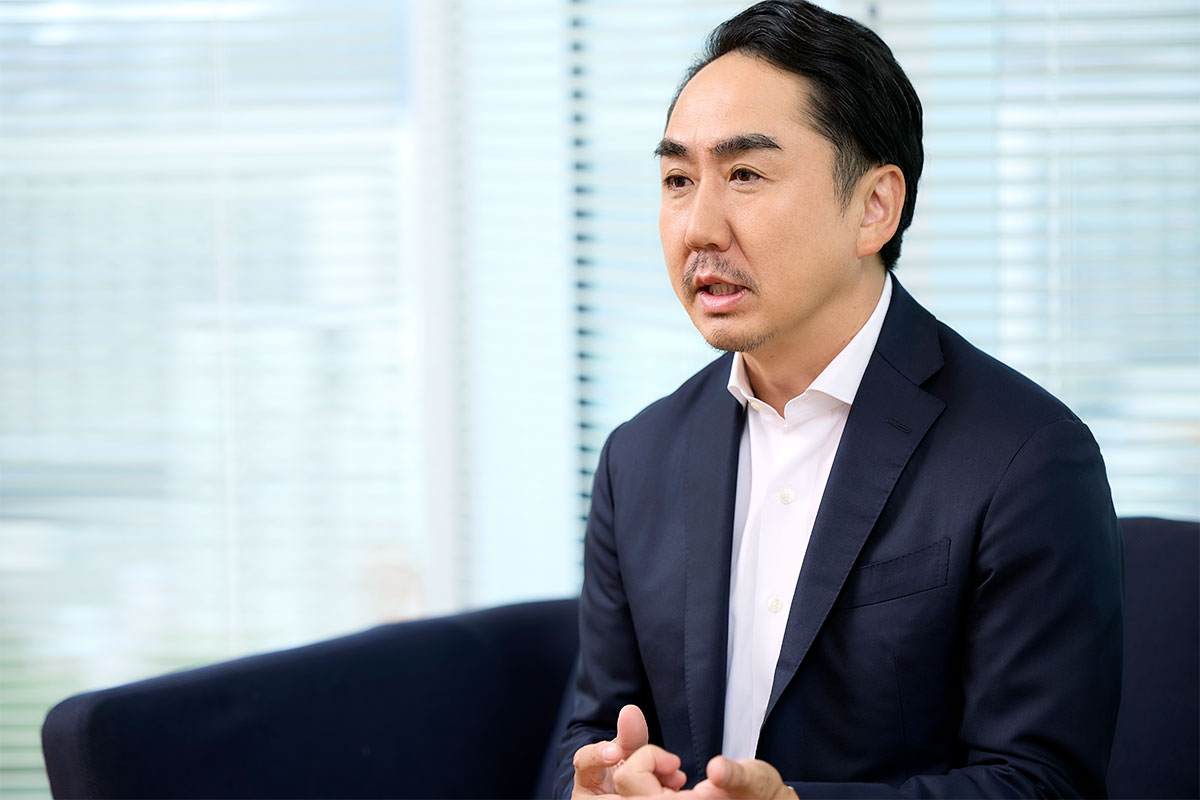
The role and resolve of a "catalyst CEO"
――Now that LY Corporation has entered its third year since the integration, how do you perceive your role as CEO?
If I had to describe it from the standpoint of driving change and promoting collaboration within the organization, I'd say I see myself as a "catalyst." As you can probably tell, I'm not the type to lead by force or say, "Follow me." Rather, I try to understand each person's strengths and aptitudes, listen carefully, make the right assignments, create chemistry within teams, and build an environment that enhances our collective capabilities.
At LY Corporation, we have a wide range of leadersーfrom entrepreneurially minded individuals who aimed for startups early on, to those who joined through M&As or globalization. I've been part of large organizations since I was a new graduate, and through that, I've long played the role of drawing out the strengths of others, connecting people, and creating synergyーa kind of catalyst.
In the current chaotic situation, where different organizational cultures and values are coming together, I believe that type of role is more important than ever.We have many highly capable and trustworthy team members, and as CEO, I see it as my mission to help unlock their potential and maximize the strength of the organization.
――While you're widely regarded as a CEO who listens to employee feedback, some decisionsーsuch as shifting from a fully remote work model to a hybrid approachーhave faced internal criticism.
It was not an easy decision, as it directly affects the lives and lifestyles of many employees.
However, looking at things from a future-back perspective, I believed it was the right time to initiate a major shift in how our organization operates.
With the rapid evolution of generative AI, our conventional ways of workingーand the pace at which we operateーare no longer sufficient. If we were just continuing our existing businesses, our previous workstyle might have been enough. But in this phase, I believe that in-person, spontaneous discussions that spark new ideas are essential.
Trade-offs are inevitable in leadership, but I have a duty to ensure the company continues to grow sustainably. Even the most flexible environment for employees means little if the company stagnates and becomes unsustainable.
――As a CEO, I imagine you've had to make some difficult decisions, such as discontinuing services. What criteria do you use in making such calls?
I strive to take a well-rounded view, weighing the value we deliver to users, the service's long-term potential, and its profitability.
Of course, exiting a service is painful. But especially in the internet industry, taking on challenges and making exits are two sides of the same coin. As AI continues to evolve and transform business structures, these kinds of decisions may become even more necessary going forward.
Even when there's pain involved, I believe that making bold, future-focused decisions is a fundamental responsibility of a business leader.
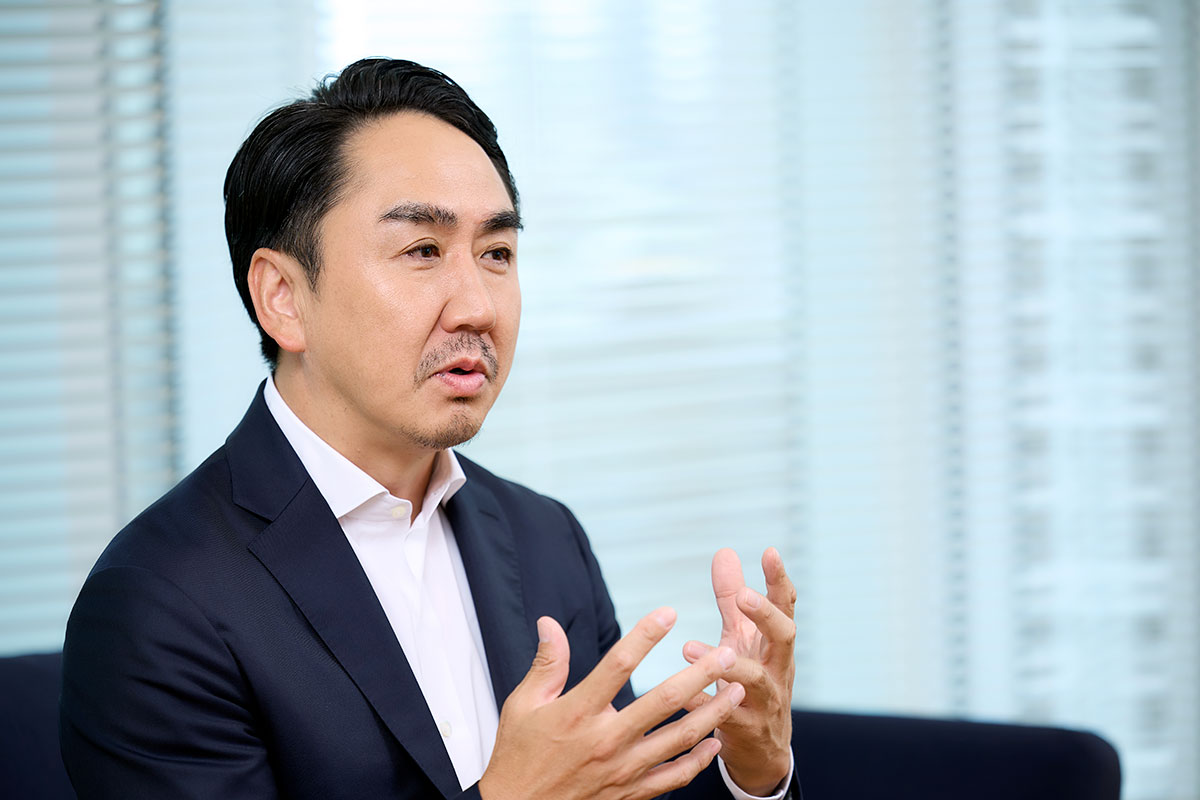
In the age of generative AI, survival depends on the ability to change
――What is your company's survival strategy in the age of generative AI?
It comes down to two things: rapidly building new AI-era services and organizations.We're experiencing a major societal shift, with people saying that almost all jobs could be replaced by AIーand this trend is not going away. That's why we need to cultivate the kind of mindset and organizational DNA that can keep adapting to change.
The businesses we operate are also likely to be significantly transformed by generative AI. That's exactly why we must act with a sense of urgency and continue updating both our products and organizational models every dayーbalancing speed and efficiency.
AI agents are already being implemented one after another. We recently announced a company-wide policy requiring all employees to actively use AI, and through full adoption, we aim to boost productivity and reinvest that capacity into generating new services and value. It's critical that we move forward with both speed and urgency.
――As AI continues to evolve, how should LY Corporation leverage its strengths to keep evolving as well?
Even as the business landscape undergoes dramatic change, the value we aim to deliver remains the same: to support our users' daily lives and provide moments of surprise, inspiration, and "WOW!"
Many global players are also envisioning more personalized AI experiences. However, we already operate a wide range of services that are closely integrated into daily life, giving us an advantage especially in Japan, where we deeply understand local user needs and can implement technology that supports everyday living. The same applies to markets like Taiwan and Thailand.
Our vision for AI agents is to deliver experiences optimized for each individual user. The real challenge is whether we can reach that visionーquickly and effectively.
――Lastly, could you share your aspirations and what kind of company you want LY Corporation to be?
In these turbulent times, I believe it's crucial to be an organization that can continue to evolveーand our strength lies in our ability to achieve this as we embrace change.
We are heading into an era where evaluation criteria and rules will continue to shift. Even in such times, we want to accept change, work together as a team, and help shape a new society.
We aim to be a company that not only leads the industry, but also Japan and Asia. Personally, I want to remain a catalystーsomeone who initiates and drives positive change within LY Corporation.
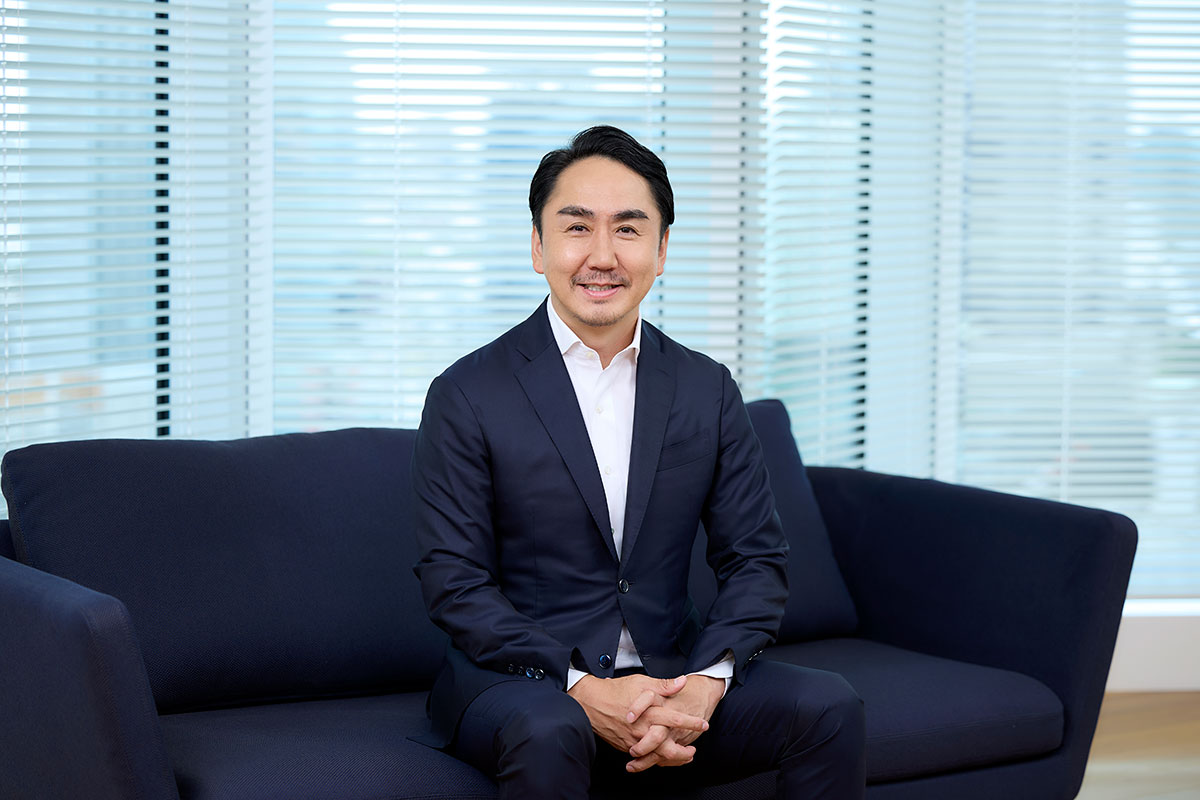
Interview date: July 11, 2025
*The affiliations and titles in the article are as of the time of the interview.

- About The LY Corporation Story
- Making daily life more convenient and exciting for everyone.
As our corporate blog, The LY Corporation Story will share the inside story behind the challenges that we take on to create WOW! as well as the thoughts and feelings behind them.


